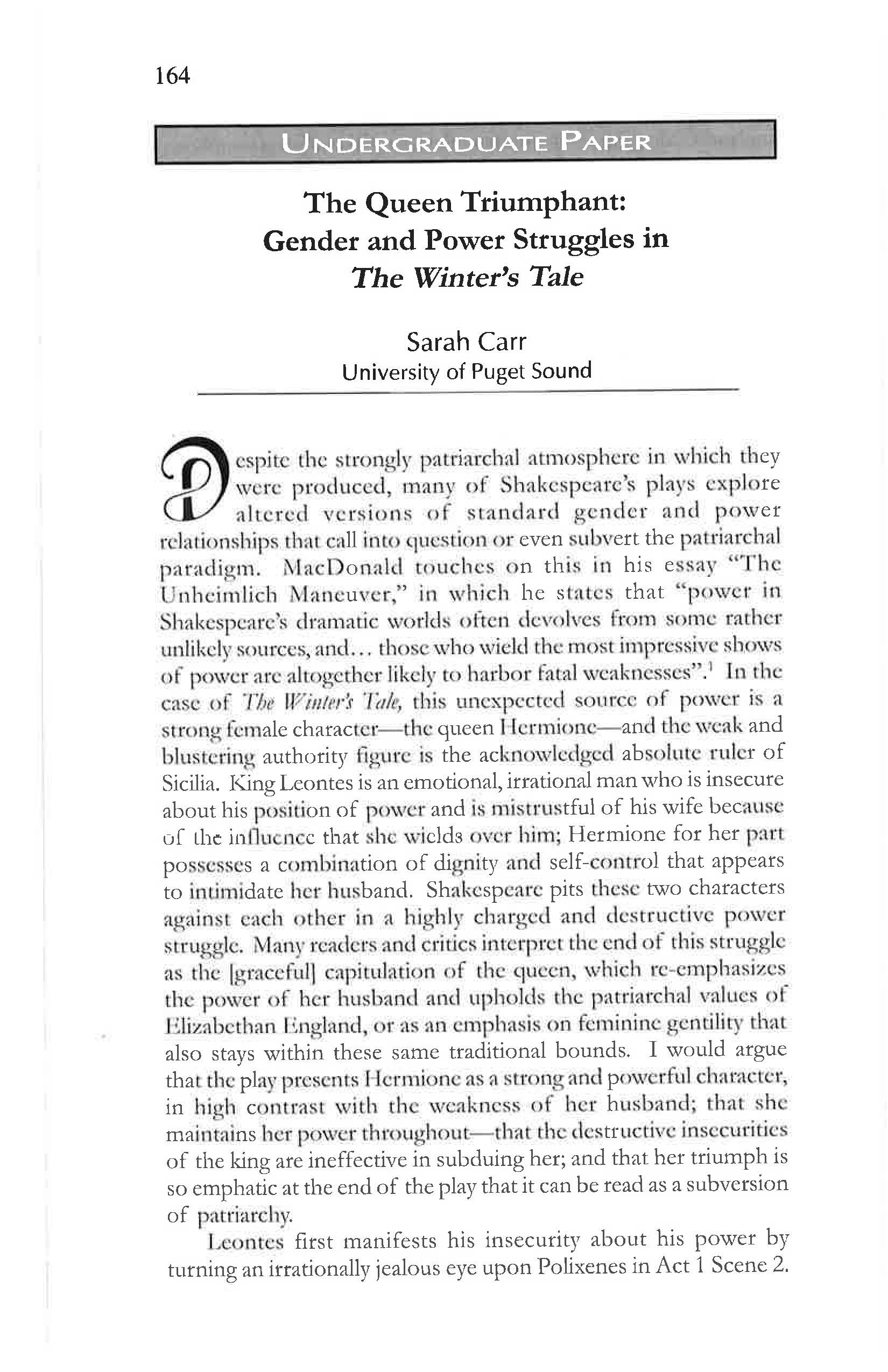The Queen Triumphant: Gender and Power Struggles in The Winter's Tale
Main Article Content
Abstract
Despite the strongly patriarchal atmosphere in which they were produced, many of Shakespeare’s plays explore altered versions of standard gender and power relationships that call into question or even subvert the patriarchal paradigm. MacDonald touches on this in his essay “The Unheimlich Maneuver,” in which he states that “power in Shakespeare’s dramatic worlds often devolves from some rather unlikely sources, and… those who wield the most impressive shows of power are altogether likely to harbor fatal weaknesses.”1 In the case of The Winter’s Tale, this unexpected source of power is a strong female character—the queen Hermione—and the weak and blustering authority figure is the acknowledged absolute ruler of Sicilia. King Leontes is an emotional, irrational man who is insecure about his position of power and is mistrustful of his wife because of the influence that she wields over him; Hermione for her part possesses a combination of dignity and self-control that appears to intimidate her husband. Shakespeare pits these two characters against each other in a highly charged and destructive power struggle. Many readers and critics interpret the end of this struggle as the [graceful] capitulation of the queen, which re-emphasizes the power of her husband and upholds the patriarchal values of Elizabethan England, or as an emphasis on feminine gentility that also stays within these same traditional bounds. I would argue that the play presents Hermione as a strong and powerful character, in high contrast with the weakness of her husband; that she maintains her power throughout—that the destructive insecurities of the king are ineffective in subduing her; and that her triumph is so emphatic at the end of the play that it can be read as a subversion of patriarchy.
